
Grand Bahama Island: Paradise Unveiled
Discover the enchanting beauty of Grand Bahama Island with its sandy beaches, vibrant culture, and thrilling water adventures in The Bahamas.
Grand Bahama Island, one of the most sought-after destinations in The Bahamas, offers a perfect mix of adventure, relaxation, and culture. With its stunning sandy beaches, clear turquoise waters, and lush landscapes, this island is a haven for tourists seeking both tranquility and excitement. Explore the vibrant city of Freeport, where you can indulge in duty-free shopping, savor local Bahamian cuisine, and experience the island's lively nightlife. For nature enthusiasts, the island is home to the Lucayan National Park, where you can discover one of the longest underwater cave systems in the world and walk through pristine mangrove forests. Water sports lovers will find plenty to do, from snorkeling and diving in the coral reefs to kayaking in the serene canals. Don't miss out on visiting the charming fishing villages and meeting the friendly locals, who are always ready to share their rich cultural heritage and traditions. Whether you're lounging on the beach, exploring underwater wonders, or immersing yourself in the local culture, Grand Bahama Island promises a memorable and enchanting experience.
Local tips in Grand Bahama Island
- Visit during the off-peak season (May to November) for fewer crowds and better deals.
- Pack reef-safe sunscreen to protect the delicate marine environment.
- Bring cash, as some local markets and vendors may not accept credit cards.
- Rent a bike or car to explore the island at your own pace and discover hidden gems.
- Try local dishes like conch fritters and Bahamian rock lobster for an authentic taste of the island.
Grand Bahama Island: Paradise Unveiled
Grand Bahama Island, one of the most sought-after destinations in The Bahamas, offers a perfect mix of adventure, relaxation, and culture. With its stunning sandy beaches, clear turquoise waters, and lush landscapes, this island is a haven for tourists seeking both tranquility and excitement. Explore the vibrant city of Freeport, where you can indulge in duty-free shopping, savor local Bahamian cuisine, and experience the island's lively nightlife. For nature enthusiasts, the island is home to the Lucayan National Park, where you can discover one of the longest underwater cave systems in the world and walk through pristine mangrove forests. Water sports lovers will find plenty to do, from snorkeling and diving in the coral reefs to kayaking in the serene canals. Don't miss out on visiting the charming fishing villages and meeting the friendly locals, who are always ready to share their rich cultural heritage and traditions. Whether you're lounging on the beach, exploring underwater wonders, or immersing yourself in the local culture, Grand Bahama Island promises a memorable and enchanting experience.
When is the best time to go to Grand Bahama Island?
Iconic landmarks you can’t miss
Freeport Cruise Port
Explore Freeport Cruise Port, your gateway to the Bahamas' stunning beaches, vibrant culture, and unforgettable adventures.
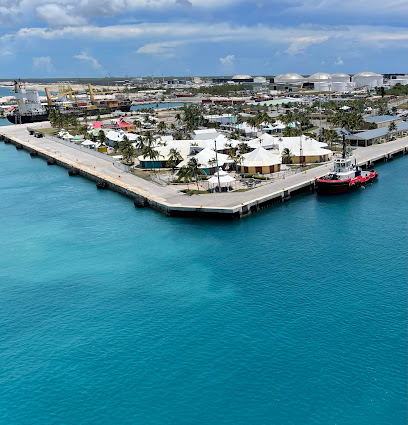
Port Lucaya Marketplace
Discover the vibrant Port Lucaya Marketplace in Freeport, Bahamas, where shopping, dining, and culture meet in a tropical paradise.
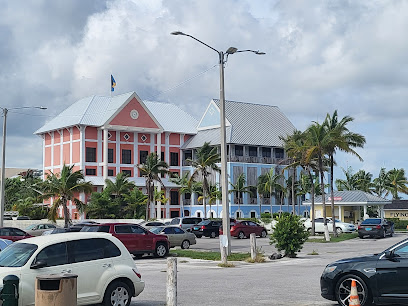
Grand Bahama
Explore Grand Bahama Island, a tropical paradise with stunning beaches, vibrant ecosystems, and rich cultural heritage, perfect for relaxation and adventure.
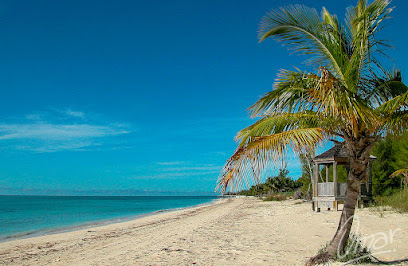
Pirate's Cove Zipline and Water Park
Discover thrills and laughter at Pirate's Cove Zipline and Water Park, where adventure meets relaxation in the heart of Freeport, Bahamas.
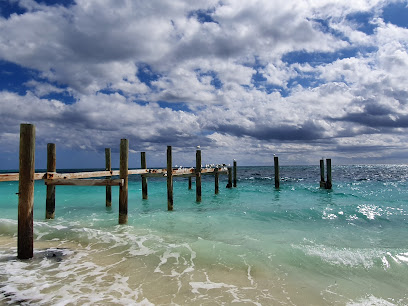
Garden of the Groves
Explore the lush landscapes of the Garden of the Groves in Freeport, Bahamas, where tranquility, beauty, and nature unite in a stunning botanical experience.
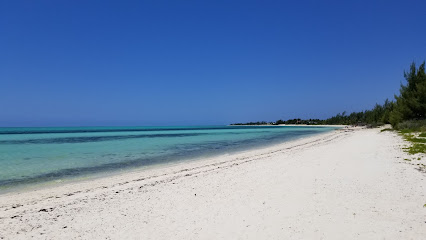
Rand Nature Center
Explore the lush landscapes and diverse wildlife of Rand Nature Center, a premier nature preserve in Freeport, Grand Bahama, where nature meets tranquility.
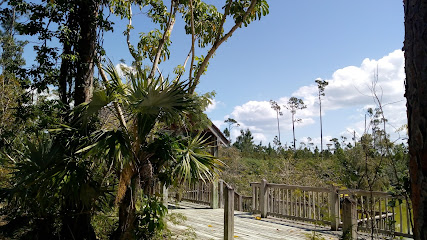
UNEXSO
Experience the enchanting underwater world at UNEXSO in Freeport, where every dive reveals the stunning marine beauty of the Bahamas.
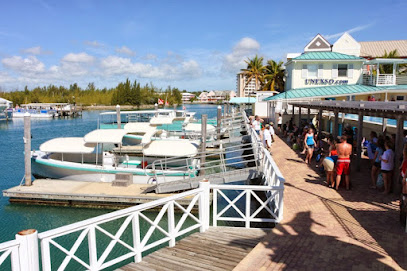
Lucayan National Park
Explore the natural beauty of Lucayan National Park in Grand Bahama, featuring stunning landscapes, underwater caves, and rich wildlife.
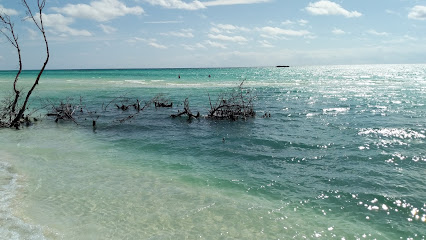
Port Lucaya Marina
Experience the vibrant atmosphere of Port Lucaya Marina in Freeport, Bahamas, where shopping, dining, and water adventures await.
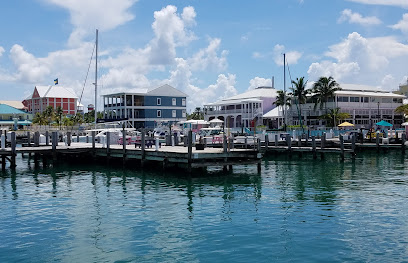
Peterson Cay National Park
Explore the natural beauty and tranquility of Peterson Cay National Park, a premier destination for relaxation and adventure in the Bahamas.
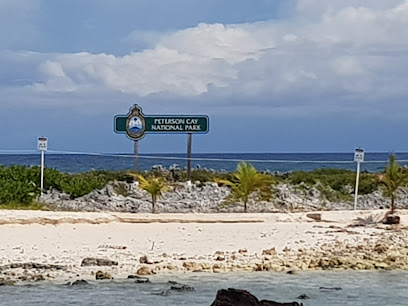
Ben’s Cave
Discover the enchanting beauty of Ben's Cave in the Bahamas, a must-visit hiking area with stunning natural formations and rich biodiversity.
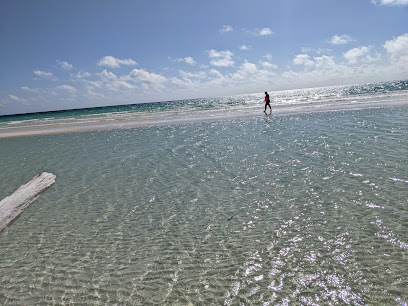
Ol Freetown Farm
Discover Ol Freetown Farm: An enchanting Bahamian farm experience showcasing local agriculture and community engagement.
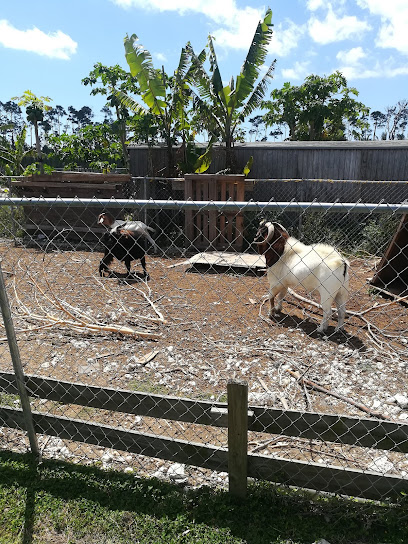
West End Ecology Tours
Explore the breathtaking biodiversity of the Bahamas with West End Ecology Tours, offering unforgettable boat adventures in stunning natural surroundings.
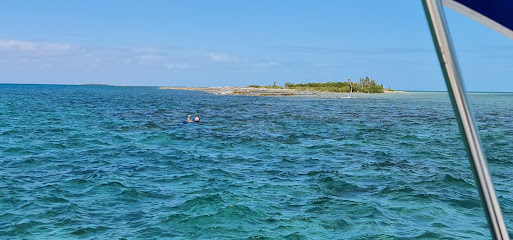
Reef Tours
Dive into adventure with Reef Tours in Freeport, Bahamas, and explore the stunning coral reefs and vibrant marine life of the Caribbean.
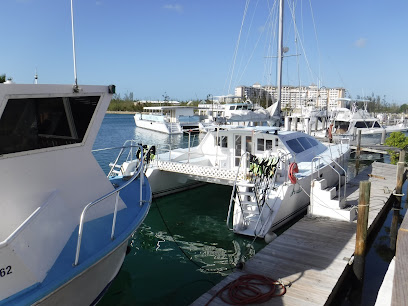
Cooper's Castle
Explore the enchanting Cooper's Castle in Grand Bahama, a captivating blend of history, stunning architecture, and serene surroundings.

Unmissable attractions to see
Port Lucaya Marketplace
Explore Port Lucaya Marketplace, a vibrant shopping and dining destination in Freeport, Bahamas, bustling with local culture and unique treasures.
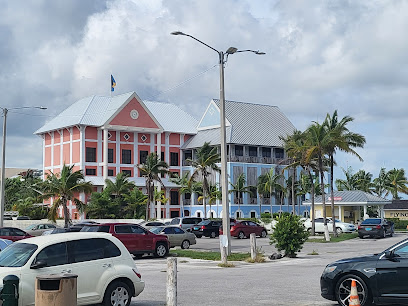
Rand Nature Center
Discover the natural beauty and tranquility of Rand Nature Center in Freeport, a perfect escape for nature lovers and tourists.
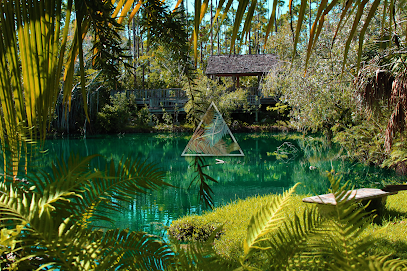
Port Lucaya Straw Market
Explore the colorful Port Lucaya Straw Market for unique Bahamian crafts, delicious local cuisine, and a vibrant cultural experience.
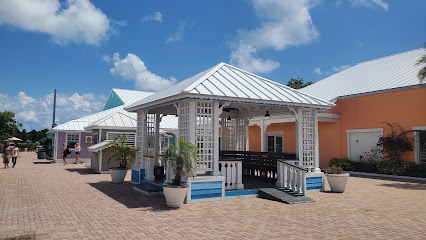
St. John's Jubilee Cathedral
Explore the stunning St. John's Jubilee Cathedral, a serene and beautiful testament to faith and artistry in Freeport, Bahamas.
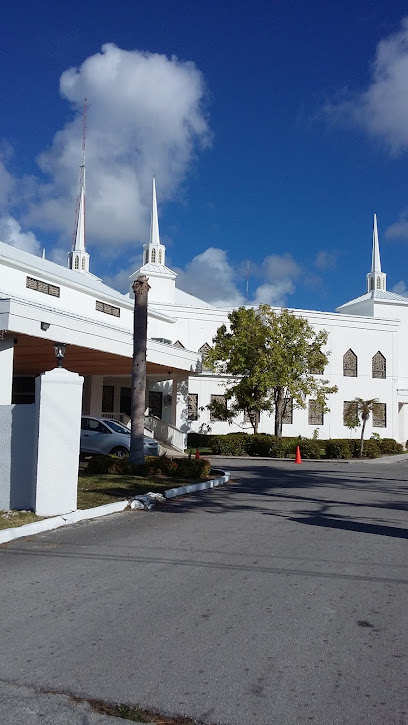
Ruby Golf Course
Experience the perfect blend of golf and tropical beauty at Ruby Golf Course in Freeport, Bahamas, where every swing is a step closer to paradise.
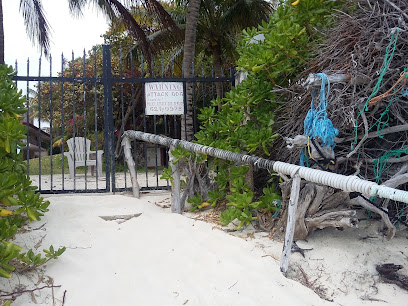
Sanctuary Bay
Explore the serene beauty of Sanctuary Bay, a breathtaking tourist attraction in Freeport, Bahamas, perfect for relaxation and aquatic adventures.
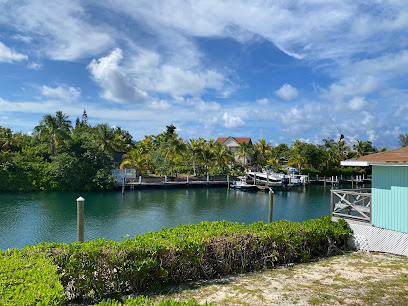
Coral Vita Coral Farm
Explore the vibrant world of coral restoration at Coral Vita Coral Farm, a unique educational experience in Freeport focused on marine conservation.
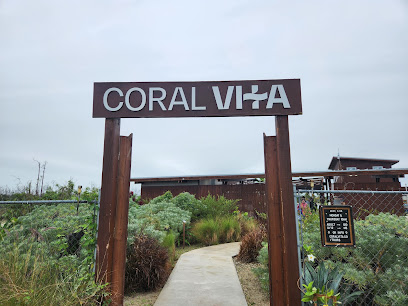
Mermaid Pond
Explore the breathtaking beauty of Mermaid Pond in Bahamia West, a tranquil oasis perfect for relaxation and nature exploration.
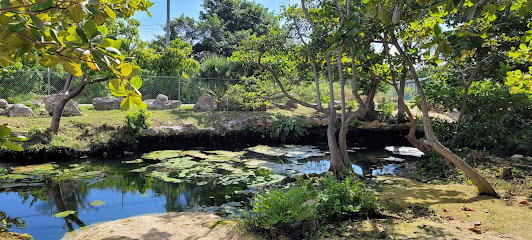
Ben’s Cave
Explore the breathtaking beauty of Ben's Cave in High Rock, Bahamas, a hidden gem for hikers and nature lovers seeking adventure and tranquility.
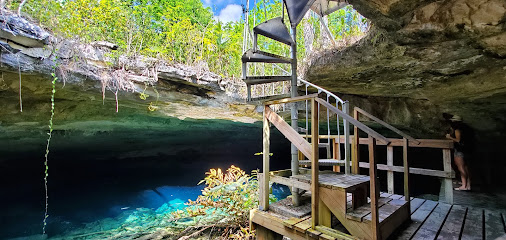
Casuarina Bridge
Discover the breathtaking views and serene atmosphere at Casuarina Bridge, a top tourist attraction in Freeport, Bahamas.
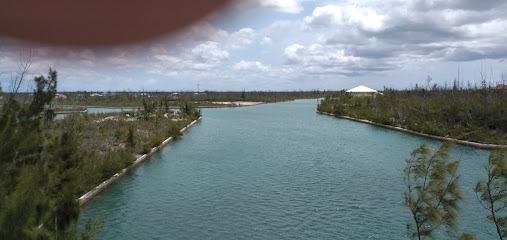
Burial Mound Cave
Explore Burial Mound Cave, a historical landmark in North Palmetto Point, rich in cultural heritage and natural beauty.
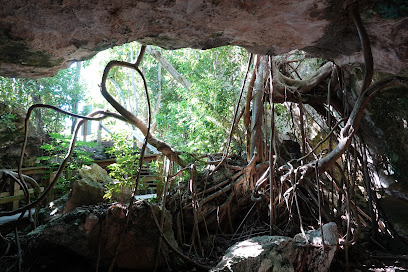
Bahamas Maritime Museum
Explore the Bahamas Maritime Museum, a captivating destination showcasing the islands' rich seafaring history and maritime culture.
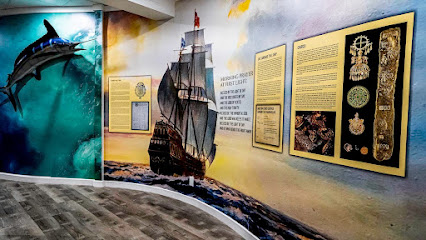
West End Ecology Tours
Explore the breathtaking marine life and natural beauty of the Bahamas with eco-friendly tours at West End Ecology Tours.
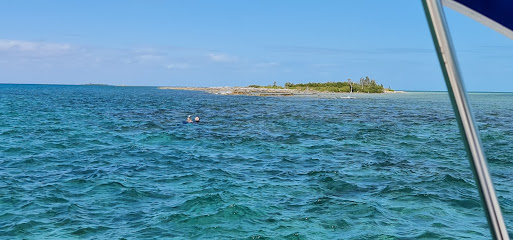
Gladstone 'Moon' McPhee Park
Experience the tranquil beauty of Gladstone 'Moon' McPhee Park in Freeport, a perfect spot for relaxation and nature exploration.

Hang Loose & Cruise Party & Snorkeling Boat
Discover breathtaking snorkeling and vibrant parties at Hang Loose & Cruise in Freeport, Bahamas, where adventure meets paradise for an unforgettable experience.
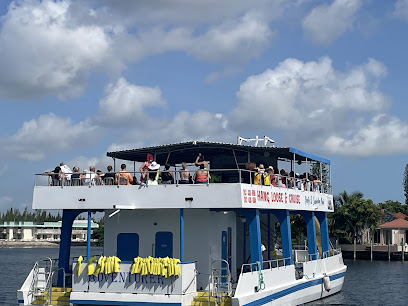
Essential places to dine
Banana Bay
Discover the vibrant flavors of Bahamian cuisine at Banana Bay, where tropical beauty meets delicious dining in Freeport.
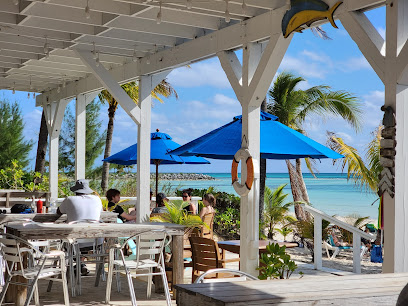
Zorba's Greek Restaurant
Savor authentic Greek flavors amidst the vibrant ambiance of Port Lucaya Marketplace in Freeport.
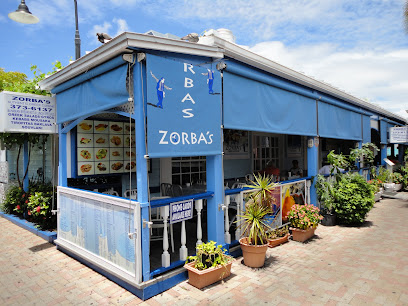
The Stoned Crab Restaurant
Experience fresh seafood and stunning views at The Stoned Crab Restaurant on Taino Beach, Freeport - a true Bahamian culinary delight.
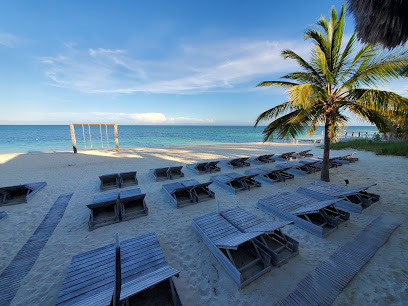
Flying Fish GastroBar
Experience exquisite Bahamian flavors at Flying Fish GastroBar in Freeport – where every dish tells a story.
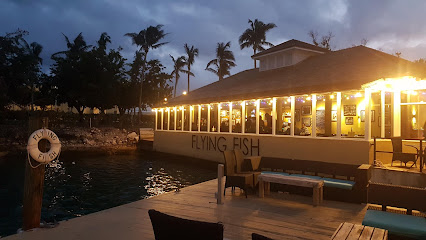
Agave Lucaya
Experience the vibrant flavors of Bahamian cuisine at Agave Lucaya, where tropical ambiance meets culinary excellence in Freeport.
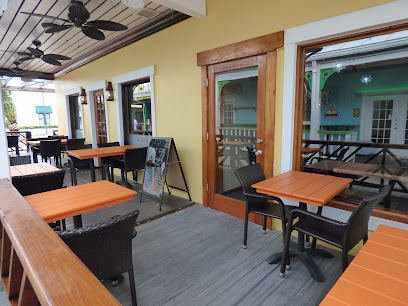
Smith's Point Fish Fry Home
Experience authentic Bahamian cuisine at Smith's Point Fish Fry in Freeport—where fresh seafood meets vibrant island culture.
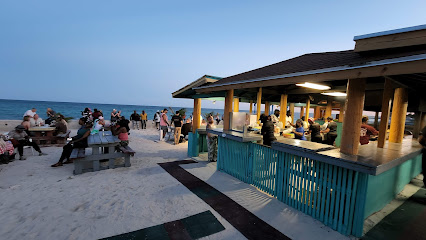
Terry’s Conch Salad Stand
Discover authentic Bahamian cuisine at Terry's Conch Salad Stand in Freeport - where fresh flavors meet island charm.
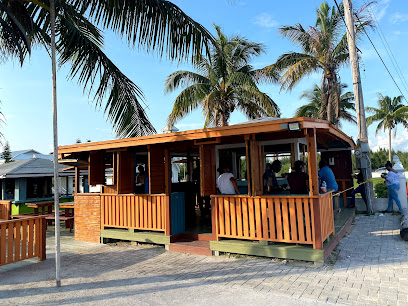
Sabor Restaurant & Bar
Experience exquisite Bahamian cuisine at Sabor Restaurant & Bar in Freeport – where vibrant flavors meet tropical ambiance.
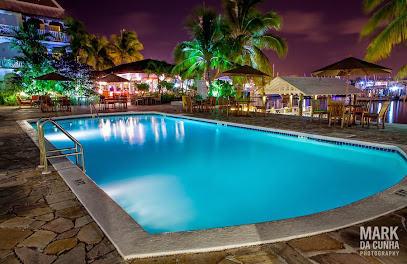
Pisces Seafood House & Pizzeria
Discover the best of Bahamian cuisine at Pisces Seafood House & Pizzeria - where fresh seafood meets delicious pizza in a vibrant setting.
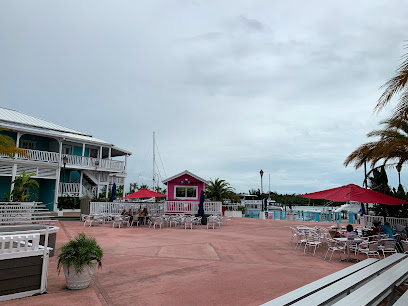
Upstairs On The Bay
Experience delectable Bahamian cuisine with stunning waterfront views at Upstairs On The Bay in Freeport.
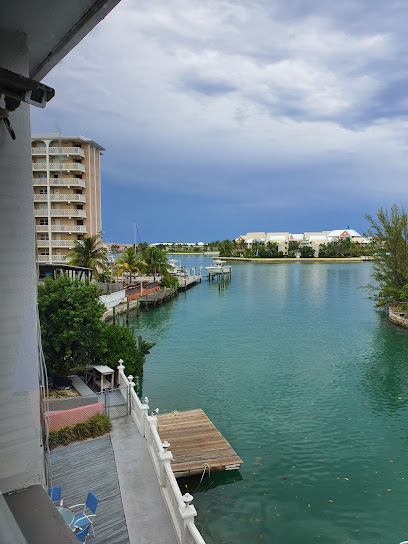
Margarita Villa Sand Bar
Discover tropical flavors at Margarita Villa Sand Bar in Freeport - your perfect Caribbean dining experience awaits.
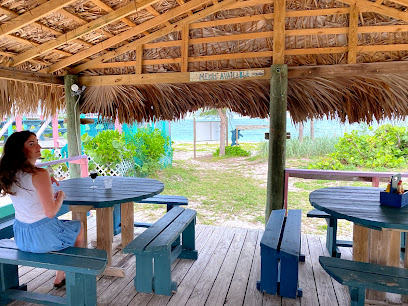
Daddy Brown's Conch Stand
Discover authentic Bahamian flavors at Daddy Brown's Conch Stand—where fresh seafood meets island hospitality in Freeport.
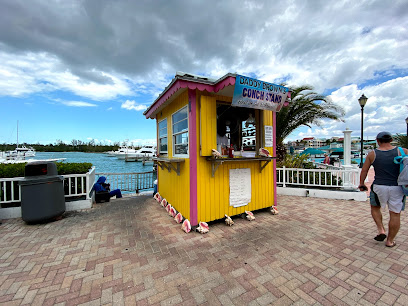
Merport Bistro
Discover authentic Bahamian cuisine at Merport Bistro in Freeport - A culinary treasure waiting for every traveler.
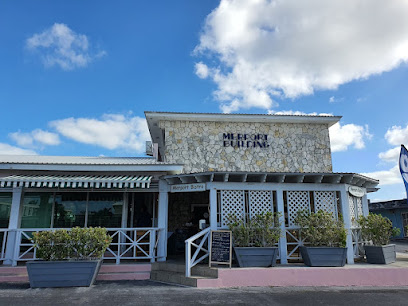
Cappuccino's Italian Ristorante
Discover authentic Italian flavors at Cappuccino's Italian Ristorante in Freeport's lively Port Lucaya Marketplace.
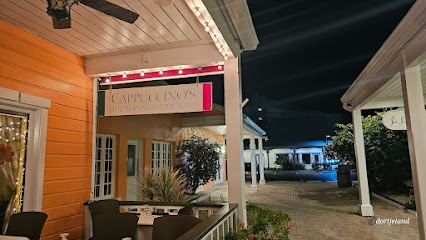
Madkap Restaurant & Bar
Experience exquisite dining at Madkap Restaurant & Bar in Freeport—where local flavors meet global cuisine in a vibrant setting.
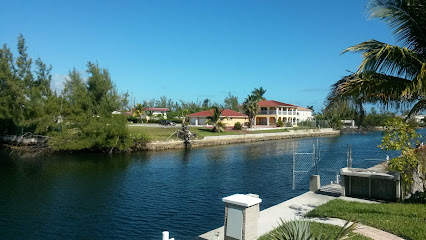
Markets, malls and hidden boutiques
Port Lucaya Marketplace
Explore Port Lucaya Marketplace: A vibrant shopping and dining destination in Freeport, offering unique finds and delicious Bahamian cuisine.
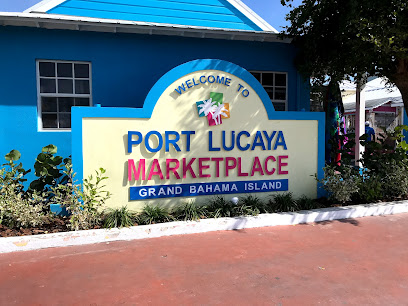
Grand Bahama
Discover the breathtaking beauty and vibrant culture of Grand Bahama, a tropical paradise perfect for relaxation, adventure, and unforgettable experiences.
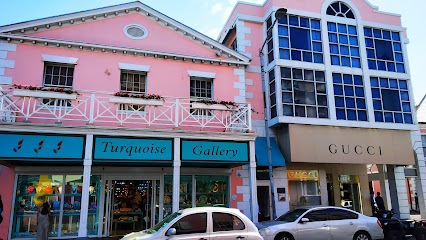
Solomon's Lucaya
Explore Solomon's Lucaya, your go-to supermarket in Freeport for fresh produce, local delicacies, and an authentic taste of Bahamian culture.
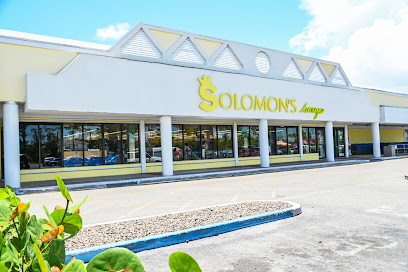
Cost Right
Discover unbeatable deals and a wide selection at Cost Right, Freeport's leading warehouse store offering quality goods at great prices.
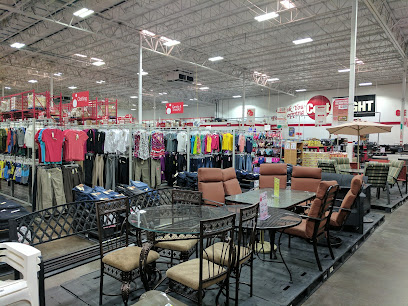
Sawyer's Fresh Market
Explore local flavors and fresh produce at Sawyer's Fresh Market in Freeport, where quality meets community spirit.
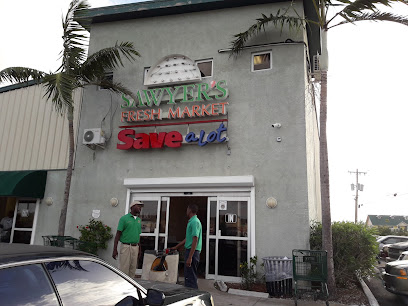
Express Foodmart
Explore the vibrant offerings at Express Foodmart, your go-to grocery store in Freeport for fresh produce and local Bahamian specialties.
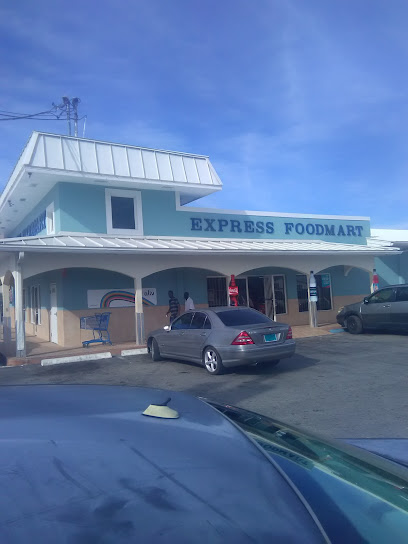
Crystal Court Shops
Discover the Crystal Court Shops on Paradise Island, a shopping paradise offering luxury brands, local crafts, and unique dining experiences.
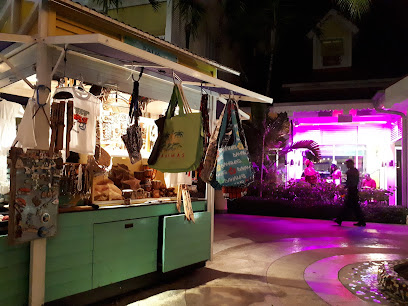
Stop n' Shop
Discover a diverse selection of groceries at Stop n' Shop in Freeport, Bahamas, your ultimate supermarket destination for local and international products.
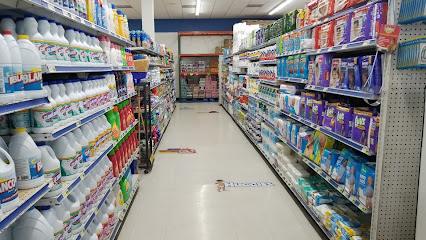
RayVin Mall
Discover an exciting shopping experience at RayVin Mall in Freeport, where diverse retail, delicious food, and vibrant energy await you.
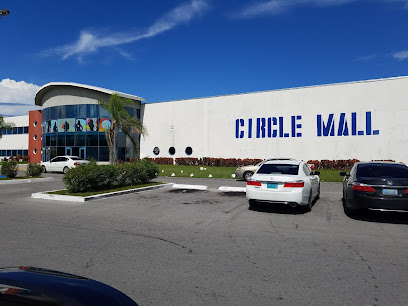
Port Lucaya Straw Market
Discover the vibrant and lively Port Lucaya Straw Market, a unique shopping destination filled with Bahamian crafts, local flavors, and cultural experiences.
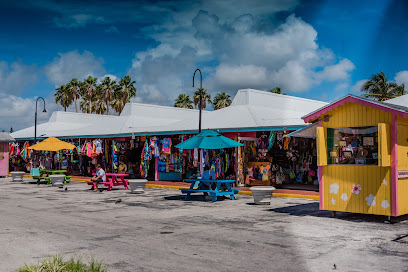
Seventeen Centre
Explore Seventeen Centre in Freeport for a unique shopping experience that blends local culture with diverse retail options.
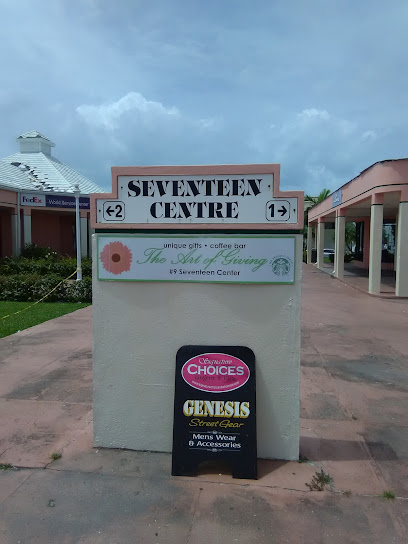
Kelly’s Freeport Ltd
Explore Kelly’s Freeport Ltd for a unique shopping experience in the Bahamas, offering everything from household essentials to local souvenirs.

LUCAYAN BEACH SPOT
Experience the tranquil beauty and vibrant atmosphere of Lucayan Beach Spot in Freeport for an unforgettable Bahamian getaway.
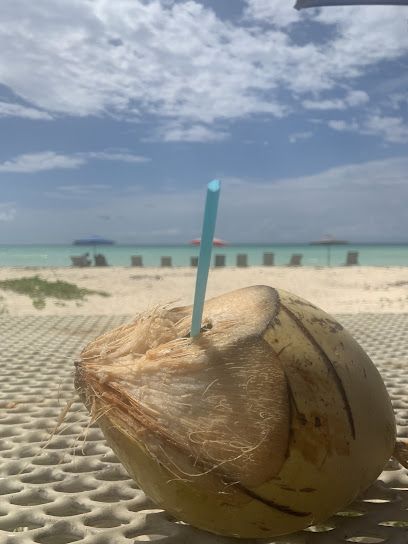
Moore Jewelry Designs
Experience the artistry of Bahamian craftsmanship at Moore Jewelry Designs, where each unique piece tells a story of beauty and culture.
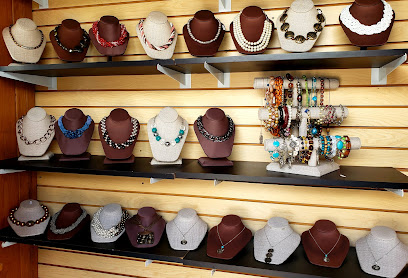
Foxies Vape & Smoke Shop Freeport, Grand Bahama
Discover the best selection of vaporizers and tobacco products at Foxies Vape & Smoke Shop in Freeport, Grand Bahama, where quality meets friendliness.
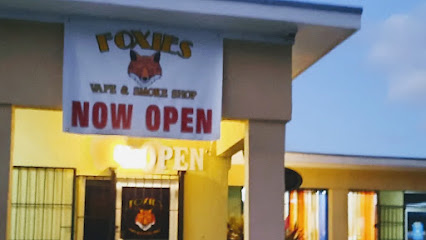
Essential bars & hidden hideouts
Rum Runners
Experience the vibrant atmosphere of Rum Runners in Freeport, a lively pub serving delicious food and refreshing drinks with stunning ocean views.
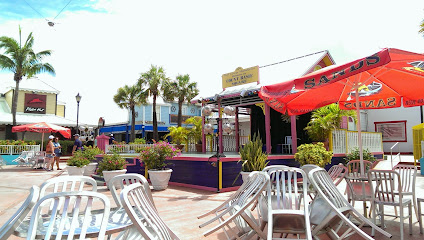
Two Dollar Bar
Discover the lively vibe of Two Dollar Bar in Freeport, where affordable drinks meet unforgettable nights filled with local culture and entertainment.
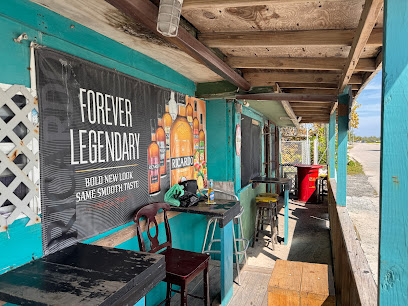
Sabor Restaurant & Bar
Experience the best of Bahamian cuisine at Sabor Restaurant & Bar, where fresh seafood meets tropical cocktails in a vibrant atmosphere.
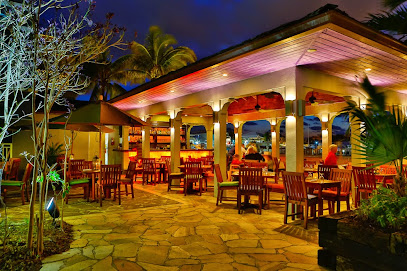
Bones Bar
Experience the vibrant atmosphere, tropical drinks, and stunning views at Bones Bar in Freeport, Bahamas – a perfect spot for relaxation and socializing.
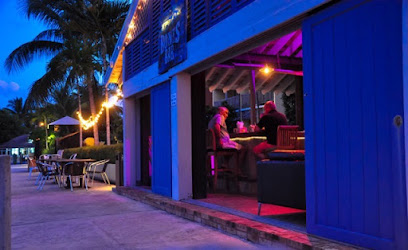
Señor Frog's | Freeport
Experience the vibrant culture and flavors of the Bahamas at Señor Frog's in Freeport, where food, fun, and entertainment come together in an unforgettable way.
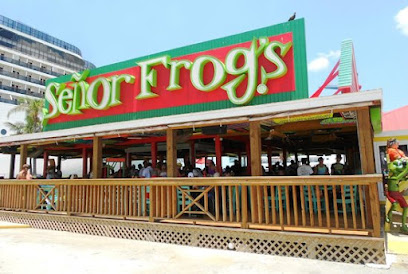
Gullywash Beach Bar & Grill
Experience the vibrant flavors and laid-back atmosphere at Gullywash Beach Bar & Grill, the perfect beachfront escape in Freeport, Bahamas.
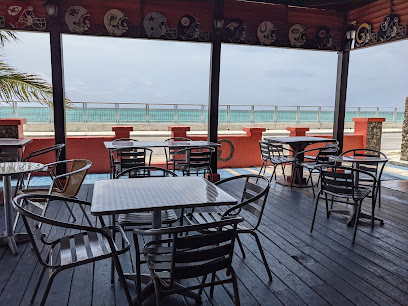
Bonaza Bar & Grill
Experience the vibrant ambiance and delicious flavors of Bahamian cuisine at Bonaza Bar & Grill in Freeport.
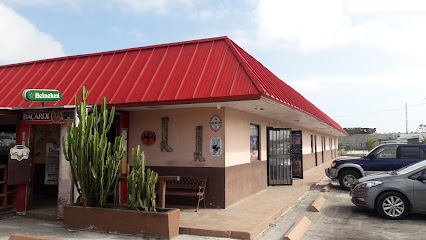
No Holds Bar
Experience the vibrant nightlife of Freeport at No Holds Bar, where refreshing drinks and a welcoming atmosphere await.
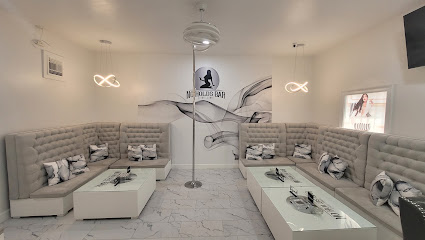
Home Boyz Bar & LOUNGE
Experience the vibrant nightlife and authentic Caribbean flavors at Home Boyz Bar & Lounge in Freeport, a must-visit for all tourists.
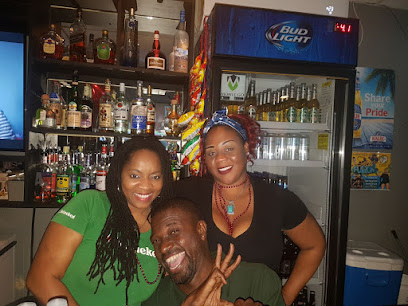
Bahama Mama Bar
Discover the lively Bahama Mama Bar at Port Lucaya Marketplace, where refreshing cocktails and vibrant music create an unforgettable island experience.
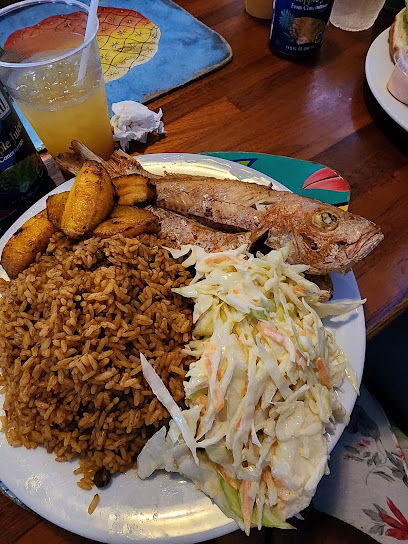
Corner Bar
Discover the vibrant nightlife at Corner Bar in Freeport, where refreshing drinks and live entertainment create an unforgettable experience.
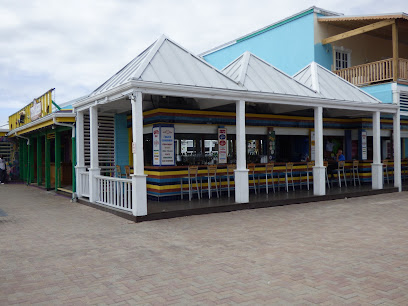
MacAttack Bar & Restaurant
Discover the vibrant taste of the Bahamas at MacAttack Bar & Restaurant, where grilled delights and refreshing drinks await you.
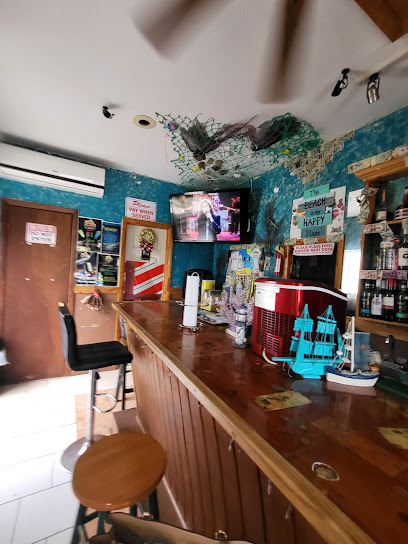
A Step Up Bar and Lounge
Discover the vibrant A Step Up Bar and Lounge in Grand Bahama, where delicious burgers and refreshing drinks create the perfect getaway atmosphere.
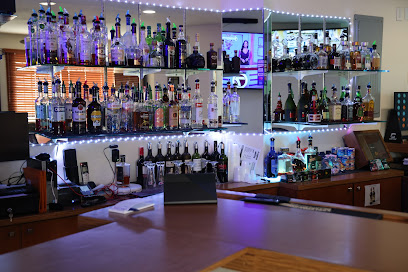
Capricorn's
Experience tropical relaxation at Capricorn's, the premier bar in Freeport, Bahamas, where refreshing drinks meet stunning beach views.
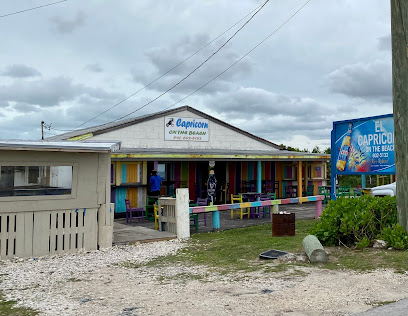
Local Phrases about Grand Bahama Island
-
- HelloGood Day
[gud dey] - GoodbyeGoodbye
[gud-bye] - YesYes
[yes] - NoNo
[no] - Please/You're welcomePlease
[pliz] - Thank youThank you
[thank yu] - Excuse me/SorrySorry
[sari] - How are you?How you doin?
[hao yu doin] - Fine. And you?I cool, you?
[ai kul, yu] - Do you speak English?You speak English?
[yu spiik ingglish] - I don't understandI don't get it
[ai dont get it]
- HelloGood Day
-
- I'd like to see the menu, pleaseMenu please
[menyu pliz] - I don't eat meatNo meat for me
[no miit for mi] - Cheers!Cheers!
[chiirz] - I would like to pay, pleaseBill please
[bil pliz]
- I'd like to see the menu, pleaseMenu please
-
- Help!Help!
[help] - Go away!Go 'way!
[go wey] - Call the Police!Call da Police!
[kawl da polis] - Call a doctor!Call a doc!
[kawl a dok] - I'm lostI lost
[ai lost] - I'm illI sick
[ai sik]
- Help!Help!
-
- I'd like to buy...I wanna buy...
[ai wana bai] - I'm just lookingJust looking
[jost luking] - How much is it?How much dis cost?
[hao mach dis kost] - That's too expensiveToo much money
[tu mach mani] - Can you lower the price?Give discount?
[giv diskaunt]
- I'd like to buy...I wanna buy...
-
- What time is it?What time it is?
[wot taim it is] - It's one o'clockOne o'clock
[wan o'klok] - Half past (10)Half pas ten
[haf past ten] - MorningMornin
[mornin] - AfternoonAfternoon
[aftanoon] - EveningEvenin
[evenin] - YesterdayYestadey
[yestadey] - TodayToday
[tudey] - TomorrowTomorrow
[tomaro] - 1One
[wan] - 2Two
[tu] - 3Three
[tree] - 4Four
[for] - 5Five
[faiv] - 6Six
[siks] - 7Seven
[sevn] - 8Eight
[ait] - 9Nine
[nain] - 10Ten
[ten]
- What time is it?What time it is?
-
- Where's a/the...?Where dat...?
[weer dat] - What's the address?Where you live?
[weer yu liv] - Can you show me (on the map)?Show me on map?
[sho mi on map] - When's the next (bus)?When next bus come?
[wen neks bus kom] - A ticket (to ....)Ticket to...
[tikit tu...]
- Where's a/the...?Where dat...?
History of Grand Bahama Island
-
Long before European contact, Grand Bahama Island was home to the Lucayan people. These indigenous inhabitants thrived on the island, practicing agriculture, fishing, and trade. The Lucayans were skilled seafarers, navigating the waters between the islands using their knowledge of the stars and ocean currents. Archaeological evidence, such as pottery shards and tools, offers a glimpse into their daily lives and rich culture.
-
In 1492, during his first voyage to the New World, Christopher Columbus is believed to have sailed past Grand Bahama Island. While he did not land on the island, his journey marked the beginning of European interest in the region. The subsequent arrival of Europeans had profound and often devastating effects on the indigenous Lucayan population, eventually leading to their decline.
-
During the late 17th and early 18th centuries, Grand Bahama Island became a haven for pirates. The island’s strategic location along major shipping routes made it an ideal base for notorious pirates like Blackbeard and Henry Morgan. These buccaneers used the island to launch attacks on Spanish galleons laden with treasure. The remnants of pirate history, including tales of buried treasure, continue to intrigue visitors to this day.
-
In the 18th century, the British established a more permanent presence on Grand Bahama Island. Settlers from the American colonies and loyalists fleeing the American Revolution sought refuge here. They developed plantations and engaged in trade, contributing to the island’s early economy. The island's main settlement, West End, became a focal point for these activities.
-
The Prohibition era in the United States (1920-1933) had an unexpected influence on Grand Bahama Island. The island became a key transshipment point for rum-runners smuggling alcohol into the U.S. The illicit trade brought prosperity to the island, with numerous hidden coves and mangroves used to evade law enforcement. This period left a lasting imprint on the island’s culture and folklore.
-
After World War II, Grand Bahama Island underwent significant development. The establishment of Freeport in 1955 marked a turning point. Wallace Groves, an American financier, negotiated with the Bahamian government to develop a free trade zone. This led to rapid urbanization and economic growth, transforming Freeport into a bustling city with modern infrastructure, resorts, and industries.
-
Grand Bahama Island boasts a rich cultural heritage, influenced by African, European, and indigenous traditions. Junkanoo, a vibrant street parade featuring music, dance, and elaborate costumes, is a highlight of the island’s cultural calendar. This celebration, rooted in African customs, is held during Boxing Day and New Year's Day. Additionally, the island hosts various festivals, such as the Grand Bahama Regatta and the International Film Festival, showcasing its diverse cultural tapestry.
-
In recent years, Grand Bahama Island has placed a strong emphasis on environmental conservation. The island is home to national parks and protected areas, such as the Lucayan National Park, which features one of the longest underwater cave systems in the world. Efforts to preserve the island’s natural beauty and biodiversity are ongoing, with initiatives focused on protecting marine life, coral reefs, and native flora and fauna.
Grand Bahama Island Essentials
-
Grand Bahama Island is accessible via multiple modes of transportation. The Grand Bahama International Airport (FPO) in Freeport is the primary entry point for international travelers. Direct flights are available from several major U.S. cities, including Miami, Fort Lauderdale, and Atlanta. Additionally, travelers can reach the island by ferry from Fort Lauderdale through services like Balearia Caribbean. Cruise ships also frequently dock at Freeport, providing another option for getting to the island.
-
Once on Grand Bahama Island, there are several transportation options available. Taxis are readily available and can be found at the airport, ferry terminals, and major hotels. Rental cars are also an option for those who prefer to explore the island at their own pace; several international car rental agencies operate on the island. Public buses, known locally as 'jitneys,' offer an inexpensive way to travel between Freeport and other parts of the island. Bicycles and scooters can also be rented for short trips and leisurely exploration.
-
The official currency of The Bahamas is the Bahamian Dollar (BSD), which is pegged to the U.S. Dollar (USD) at a 1:1 ratio. Both Bahamian Dollars and U.S. Dollars are widely accepted across the island. Major credit cards (Visa, MasterCard, and American Express) are accepted in most hotels, restaurants, and shops. ATMs are available in Freeport and other major areas, allowing you to withdraw cash as needed. It is advisable to carry some cash for smaller establishments that may not accept cards.
-
Grand Bahama Island is generally safe for tourists, but it is wise to take standard precautions. Petty crime such as pickpocketing and bag snatching can occur, particularly in crowded areas and tourist hotspots. High-crime areas include some parts of Freeport and the International Bazaar. Avoid walking alone at night, especially in poorly lit or unfamiliar areas. Always keep an eye on your belongings and be cautious of strangers offering unsolicited help or services.
-
In case of an emergency, dial 911 for immediate assistance. Grand Bahama Health Services provides medical care, and the Rand Memorial Hospital in Freeport is the main medical facility on the island. It's advisable to have travel insurance that covers medical emergencies. For minor health issues, pharmacies are available throughout Freeport. The local police station is also located in Freeport and can assist with reporting crimes or other urgent matters.
-
Fashion: Do dress casually and comfortably, but avoid overly revealing clothing in public places. Swimwear should be reserved for the beach or pool. Religion: Do respect local religious customs, especially when visiting churches. Dress modestly and speak softly. Public Transport: Do use 'jitneys' for an affordable way to get around. Don't eat or drink on public transport. Greetings: Do greet people with a friendly 'hello' or 'good morning/afternoon.' Bahamians are generally polite and appreciate courteous interactions. Eating & Drinking: Do try local Bahamian cuisine such as conch, peas and rice, and Bahama Mama cocktails. Don't refuse food or drink offerings, as it can be considered impolite.
-
To experience Grand Bahama Island like a local, visit the Port Lucaya Marketplace, where you can find local crafts, food, and live entertainment. Engage with locals, who are often friendly and willing to share insights about the island's culture and history. Don't miss out on Junkanoo, a traditional Bahamian street parade with music, dance, and elaborate costumes, usually held during the Christmas and New Year holidays. For a unique experience, take an eco-tour to explore the island's natural beauty, including the Lucayan National Park and its stunning underwater caves.
Trending Landmarks in Grand Bahama Island
Nearby Cities to Grand Bahama Island
-
Things To Do in Lucaya
-
Things To Do in Bimini
-
Things To Do in Fort Lauderdale
-
Things To Do in Stuart
-
Things To Do in Miami
-
Things To Do in Ft. Pierce
-
Things To Do in Nassau
-
Things To Do in Harbour Island
-
Things To Do in Andros Town
-
Things To Do in Homestead
-
Things To Do in Key Largo
-
Things To Do in Eleuthera
-
Things To Do in Sebring
-
Things To Do in Fort Myers
-
Things To Do in Cape Coral












